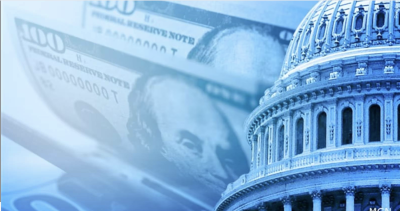Russia’s $300 Billion “Frozen Assets”: Is The West Contemplating The Transfer of Russia’s Confiscated Assets to the Kiev Regime?

All Global Research articles can be read in 51 languages by activating the Translate Website button below the author’s name (only available in desktop version).
To receive Global Research’s Daily Newsletter (selected articles), click here.
Click the share button above to email/forward this article to your friends and colleagues. Follow us on Instagram and Twitter and subscribe to our Telegram Channel. Feel free to repost and share widely Global Research articles.
***
When the political West insists on the so-called “rules-based world order“, it’s perhaps the most laughable claim of our time, as this supposed “international community” doesn’t abide by its own rules and laws which formally state that private property is protected.
The nominally capitalist power pole has no problem using what it usually calls a “communist practice” of illegal confiscation of the said property. In the aftermath of the special military operation (SMO), the United States and its numerous vassals and satellite states illegally froze hundreds of billions in Russian foreign exchange (forex) reserves. Estimates vary, but the most commonly cited number amounts to approximately $300 billion in assets.
The original idea was to cause an artificial default in Russia. In turn, this was supposed to result in massive financial destabilization. Namely, when a country defaults, it disposes of (or ignores, depending on the viewpoint) its financial obligations towards its creditors. The immediate consequence for the country is a reduction in its total debt and a reduction or even cessation of payments on the interest of that debt. A credit rating agency then takes this into account in its gradings of capital, interest, extraneous and procedural defaults, and failures to abide by the terms of bonds or other debt instruments. In short, the country in question becomes a geoeconomic pariah, which then affects its diplomatic standing.
Precisely this was what the political West wanted to ensure for Russia. With no access to its forex reserves, Moscow was expected to bleed dry financially, forcing it into a default that would then isolate the country and make trading with it not just hard, but nearly impossible. This geopolitical tool has been the mainstay of non-kinetic segments of Western hybrid warfare against the world for well over half a century now. And it might work against small to medium-sized countries. However, the Eurasian giant is neither of those. Russia is an energy superpower and a net exporter of natural gas, oil, rare earth metals and nonmetals, fertilizer, food and many other commodities that are absolutely essential to the world.
It’s also an industrial power that produces heavy machinery, chemical products, manufacturing tools, etc. Trying to isolate such a country is simply impossible. What’s more, even much smaller and less powerful countries targeted by US sanctions are finding ways to circumvent them, simply because others need their commodities. This is true for Venezuela, Iran, Cuba, Syria and even North Korea, which bore the brunt of Western sanctions before the SMO. Rather schizophrenically, even the political West itself is trying to find ways to circumvent its own sanctions. Still, it’s trying to make Russia’s life as difficult as possible by attempting to turn it into a failed state or at the very least making it look like one.
All this accomplishes little more than propaganda “wins”, effectively serving only for optics purposes. Thus, the US-led power pole is now trying to find other uses for frozen Russian forex reserves. Namely, according to the Financial Times, G7 is moving closer to approving a plan that would funnel approximately $300 billion in stolen Russian assets to the increasingly cash-strapped Kiev regime. According to the FT’s own admission, the proposal constitutes “a radical step that would open a new chapter in the West’s financial warfare against Moscow”. The troubled Biden administration is yet to announce that this is their official stance, but FT posits that American officials are “actively engaging G7 countries to see it through”.
“A US official said Washington was engaged in active conversations on the use of Russian sovereign assets and believed there was a short timeline to make a decision,” the FT report reads, adding: “They suggested it could be discussed at a possible G7 leaders’ meeting to coincide with the second anniversary in February of Russia’s full invasion of Ukraine.”
In other words, the “exclusive club” of closest Anglo-American vassals and satellite states is being given instructions on how to handle their own financial and foreign policy, including the theft of other countries’ forex assets. As previously mentioned, the sanctions warfare has not only been a miserable failure, but has also backfired. Thus, the political West is trying to hurt Russia by not only stealing its reserves, but also illegally transferring them to the Neo-Nazi junta. The obvious goal is to “adequately” substitute US funding that is now virtually guaranteed to run out thanks to the peculiarities of America’s political system, as the growing Republican-Democrat divide turns into an even bigger headache for the Kiev regime.
Apart from the halt in Washington DC’s financing, the EU is also having major issues in finding consensus about continued support for the Neo-Nazi junta. Namely, last week, Hungarian Prime Minister Viktor Orban blocked another “aid” package worth €50 billion. This happened on the same day Budapest abstained from a vote on starting formal EU membership talks with the Kiev regime. It can be argued that Brussels is its last chance to stay afloat financially, although this is virtually guaranteed to break Europe’s already fledgling economy. In other words, the political West is risking the dismantling of its entire financial system and stability for the sake of the Neo-Nazi junta that is bound to lose anyway.
*
Note to readers: Please click the share button above. Follow us on Instagram and Twitter and subscribe to our Telegram Channel. Feel free to repost and share widely Global Research articles.

